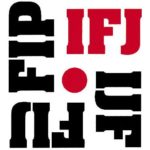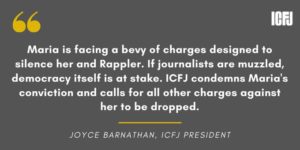 The coronavirus pandemic has provided cover for a variety of authoritarian moves against free expression in the South East Asia region, notes Jim Nolan, the International Federation of Journalists’ pro-bono legal expert in the Asia Pacific. In the Philippines, a full frontal attack on the free media has occurred with the Duterte government’s cancellation of the broadcasting licence of the country’s largest broadcaster – television network ABS-CBN. In Malaysia the Communications and Multimedia Act (CMA) continues to be used to prosecute media workers who are reporting the pandemic despite the relevant minister’s commitment to review the act’s restrictions on press freedom. In Indonesia, access of journalists to West Papua is still restricted and political activists have been arrested and jailed, he writes:
The coronavirus pandemic has provided cover for a variety of authoritarian moves against free expression in the South East Asia region, notes Jim Nolan, the International Federation of Journalists’ pro-bono legal expert in the Asia Pacific. In the Philippines, a full frontal attack on the free media has occurred with the Duterte government’s cancellation of the broadcasting licence of the country’s largest broadcaster – television network ABS-CBN. In Malaysia the Communications and Multimedia Act (CMA) continues to be used to prosecute media workers who are reporting the pandemic despite the relevant minister’s commitment to review the act’s restrictions on press freedom. In Indonesia, access of journalists to West Papua is still restricted and political activists have been arrested and jailed, he writes:
To add to this litany of woes, on Friday, June 5, the Minister of Justice of Timor-Leste published a draft law proposing to re-introduce criminal defamation law. This is an especially troubling development since – alone among South East Asian nations – Timor-Leste abolished colonial era criminal defamation laws when its new Press Code was adopted back in 2014. Although the press law was not without its critics (for good reason), at least it was a cause for celebration that the scourge of criminal defamation had been removed from the statute books. RTWT
On June 19, as part of the Post’s Press Freedom Partnership, Jason Rezaian will be moderating a panel discussion with Ressa and filmmaker Ramona Diaz, whose documentary “A Thousand Cuts” follows Duterte’s efforts to shut down Rappler and silence Ressa.

 “Today a court in the Philippines became complicit in a sinister action to silence a journalist for exposing corruption and abuse,” Amal Clooney, Ressa’s London-based lawyer,
“Today a court in the Philippines became complicit in a sinister action to silence a journalist for exposing corruption and abuse,” Amal Clooney, Ressa’s London-based lawyer, 





